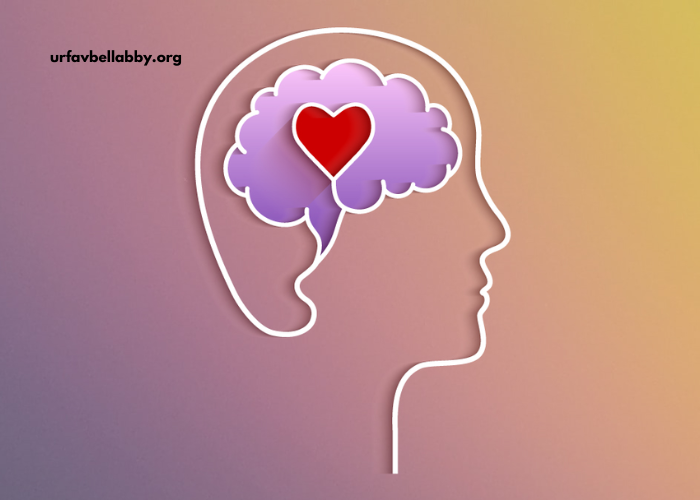Mental health has become an increasingly critical topic of discussion worldwide. With the rising pressures of modern life, it’s essential to understand the importance of emotional wellbeing and how to maintain it. This article explores various strategies for improving mental health, offering insight into the practices, tips, and tools that can foster a healthier mindset.
The Importance of Mental Health Awareness
Mental health is an essential part of overall health and wellbeing. It encompasses emotional, psychological, and social aspects of a person’s life, affecting how individuals think, feel, and act. Mental health also plays a key role in how people handle stress, relate to others, and make choices.
Raising awareness around mental health is crucial because it helps eliminate stigma, encourages open conversations, and fosters an environment where individuals feel supported in seeking help. Many people suffer in silence, unaware of how to manage their emotional wellbeing, or they may feel ashamed of their struggles. By increasing mental health awareness, we can help individuals access resources, develop coping mechanisms, and ultimately lead happier, healthier lives.
Recognizing the Signs of Mental Health Challenges
Before diving into strategies for better emotional wellbeing, it’s important to first recognize the signs that indicate mental health might be at risk. The earlier an issue is identified, the sooner steps can be taken to address it. Some common signs of mental health challenges include:
Emotional Symptoms
- Constant sadness or irritability: Persistent feelings of sadness, hopelessness, or frustration can be a sign of depression or anxiety.
- Feelings of worthlessness or guilt: Excessive guilt or feelings of inadequacy can indicate underlying emotional struggles.
- Mood swings: Significant and sudden changes in mood can affect relationships and general wellbeing.
Physical Symptoms
- Sleep disturbances: Difficulty falling asleep or staying asleep, or excessive sleeping, can be indicators of mental health issues.
- Fatigue: Constantly feeling tired or drained can be a symptom of stress, depression, or anxiety.
- Changes in appetite: A significant increase or decrease in appetite may indicate emotional distress.
Behavioral Symptoms
- Social withdrawal: Avoiding friends, family, and regular activities is often a sign that someone is struggling emotionally.
- Difficulty concentrating: Mental health issues can cause a lack of focus, making it hard to complete tasks or engage in conversations.
Cognitive Symptoms
- Negative thought patterns: Continuous negative self-talk and distorted thinking patterns often accompany conditions like depression and anxiety.
- Feelings of detachment or numbness: A sense of disconnection from the world or feeling emotionally numb can be signs of mental health struggles.
If any of these symptoms resonate with you or someone you know, seeking professional help is a proactive step toward improving emotional wellbeing.
Strategies for Better Emotional Wellbeing
1. Practice Mindfulness and Meditation
Mindfulness and meditation are two of the most effective strategies for improving emotional wellbeing. Mindfulness refers to the practice of being present in the moment without judgment, which can help reduce stress and enhance emotional regulation.
Benefits of Mindfulness and Meditation
- Reduces stress and anxiety: Practicing mindfulness helps lower cortisol levels, which can reduce feelings of stress and anxiety.
- Improves emotional regulation: Mindfulness promotes awareness of emotions, which can lead to better emotional control and resilience.
- Enhances focus and concentration: A regular meditation practice can improve mental clarity and increase concentration levels.
2. Engage in Physical Activity
Exercise is not just for physical health—it also has profound benefits for mental health. Physical activity helps release endorphins, which are known as “feel-good” hormones. Regular exercise can improve mood, reduce anxiety, and even combat symptoms of depression.
How to Incorporate Physical Activity
- Daily walks: Even a short, brisk walk each day can significantly boost your mood.
- Yoga or Tai Chi: These practices combine movement with mindfulness, reducing stress while enhancing flexibility and balance.
- Strength training: Engaging in weightlifting or resistance training can also help improve mental health by fostering a sense of accomplishment and increasing self-esteem.
3. Prioritize Sleep
Sleep is often overlooked when it comes to mental health, but it’s essential for maintaining emotional wellbeing. Poor sleep quality can exacerbate symptoms of depression, anxiety, and other mental health challenges. Ensuring you get adequate rest allows your brain to recover and process emotions effectively.
Tips for Improving Sleep
- Establish a consistent sleep schedule: Go to bed and wake up at the same time every day to regulate your internal clock.
- Create a relaxing bedtime routine: Wind down with calming activities like reading or taking a warm bath to signal to your body that it’s time to sleep.
- Limit screen time before bed: The blue light from screens can interfere with your ability to fall asleep, so it’s important to avoid technology in the hour leading up to bedtime.
4. Build Strong Social Connections
Humans are social creatures, and having a support network is crucial for maintaining emotional wellbeing. Strong relationships provide comfort during tough times and foster feelings of belonging and validation.
How to Cultivate Meaningful Connections
- Spend time with loved ones: Make time for family, friends, and colleagues who uplift you and share your values.
- Seek social support when needed: Don’t hesitate to lean on others when you’re going through a tough time. Sharing your feelings with someone you trust can help alleviate emotional burdens.
- Join groups or communities: Engage in clubs, online communities, or volunteer opportunities where you can connect with others who share similar interests.
5. Develop Healthy Coping Mechanisms
Life’s challenges are inevitable, and how you cope with stress and adversity can significantly impact your mental health. Developing healthy coping mechanisms is essential for resilience.
Healthy Coping Strategies
- Breathing exercises: Simple breathing techniques, such as deep breathing or box breathing, can quickly calm the nervous system during moments of stress.
- Journaling: Writing down your thoughts and feelings can help process emotions and reduce anxiety.
- Creative outlets: Expressing yourself through art, music, or writing can be a therapeutic way to release pent-up emotions.
6. Seek Professional Help When Necessary
There is no shame in seeking professional support for mental health issues. Therapists, counselors, and psychiatrists can help individuals navigate their emotional challenges and offer effective coping strategies.
Types of Professional Help
- Cognitive Behavioral Therapy (CBT): A widely used therapeutic approach that helps individuals recognize and change negative thought patterns and behaviors.
- Talk therapy: Talking with a licensed therapist can help you gain insight into your feelings and develop strategies for coping.
- Medication: For some, medication may be necessary to manage symptoms of mental health conditions like depression or anxiety. It’s important to work with a doctor to determine the best approach.
7. Set Boundaries and Manage Stress
Setting healthy boundaries is a vital aspect of emotional wellbeing. Whether it’s in personal relationships, work environments, or social obligations, knowing your limits and respecting them can prevent burnout and emotional exhaustion.
Stress Management Techniques
- Time management: Organize your schedule to ensure you have time for work, relaxation, and self-care.
- Learn to say no: Politely declining requests that would cause unnecessary stress can help you maintain a balanced life.
- Take regular breaks: Throughout the day, take small breaks to recharge your mind and body.
8. Practice Self-Compassion
Being kind to yourself is one of the most powerful tools in maintaining emotional wellbeing. Many people are their own harshest critics, but self-compassion allows you to treat yourself with the same kindness and understanding that you would offer to a loved one.
Ways to Practice Self-Compassion
- Challenge negative self-talk: Replace harsh self-judgments with more nurturing, positive affirmations.
- Forgive yourself for mistakes: Understand that everyone makes mistakes, and use them as opportunities for growth.
- Prioritize self-care: Make time for activities that nourish your body, mind, and soul.
9. Focus on Personal Growth
Constant personal growth is essential for emotional wellbeing. Engaging in activities that challenge you, learn new skills, and pursue passions can create a sense of purpose and accomplishment.
Ways to Promote Personal Growth
- Set achievable goals: Break down long-term aspirations into manageable steps that you can work toward regularly.
- Learn new things: Whether it’s a hobby, a language, or a professional skill, learning stimulates the brain and boosts confidence.
- Embrace challenges: View challenges as opportunities for growth, rather than obstacles to avoid.
Conclusion
Mental health awareness and emotional wellbeing are critical components of a fulfilling and successful life. By recognizing the signs of mental health challenges and implementing strategies like mindfulness, exercise, strong social connections, and professional support, individuals can improve their emotional wellbeing. Remember, taking small steps toward better mental health can make a significant difference in your overall quality of life.
In a world where mental health is becoming increasingly important, it’s crucial to continue fostering open conversations and breaking down the stigma surrounding mental illness. By prioritizing mental health, we can create a society where emotional wellbeing is recognized as equally important as physical health.





